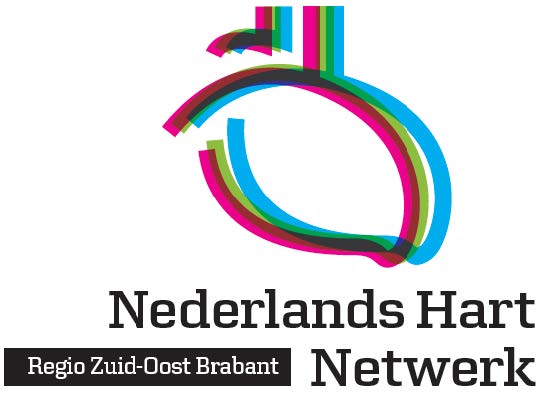Netherlands Heart Network
Due to the aging of Dutch inhabitants, the expected rise of cardiovascular diseases, and the associated growth of healthcare costs, initiatives are needed that implement the promising theory of Value Based Healthcare (VBHC) to offer the most relevant patient outcomes at the lowest costs. Hence, the NHN is initiated and is the first successful implementation of an integrated care delivery system9 that targets patient relevant outcomes for cardiac patients, in a densely populated region in the Netherlands (approximately 761.763 inhabitants). In essence, the NHN is a joint effort of all relevant healthcare providers in primary, secondary, and tertiary care (i.e. cardiologists, GPs, nurses, ambulance service, thrombosis service, home care organizations, pharmacists, and diagnostic centers) that aims to continuously improve outcomes that matter most for cardiac patients by organizing the total care delivery value chain in an optimal and uniform way21. Besides patient relevant outcomes, healthcare costs are evaluated in association with Dutch healthcare insurers. By doing so the patient relevant outcomes are delivered at the lowest costs in the NHN. In order to achieve the highest patient value the NHN initiates networks concerning specific heart conditions (e.g. atrial fibrillation, heart failure, coronary artery disease, and valvular heart disease). Within the networks patient relevant outcome measures are indicated using the medical sets of the Netherlands Heart Registration, previously known as Meetbaar Beter (winner of the VBHC prize 2014) as a primary source. Due to the close collaboration between the Netherlands Heart Registration and ICHOM, the used set of patient relevant outcome measures are aligned with ICHOM. To ensure the highest value for cardiac patients in the NHN, patient relevant outcome indicators are continuously measured and improved using a PDCA-cycle.
To be able to improve outcomes, in every network of the NHN an transmural standard of care is developed (consisting of an uniform definition of the syndrome, initial conditions, patient relevant outcome measures, a process of care, protocols for the specific heart condition, process measures, and structure measures) between healthcare providers in primary, secondary, and tertiary care. In this phase the healthcare process is optimized with a focus on improving patient relevant outcomes, the design of the process is led by the strongest hypothesis regarding the added value of all activities in the process to the outcomes. In addition, healthcare costs are saved by eliminating duplication of procedures and tuning transmission of activities between primary, secondary, and tertiary care. By using this approach all conditions of Professor Porters’ Measurement Landscape are included. Based on insight in the results of patient relevant outcome measures in the total care delivery chain, the NHN is able to improve the transmural standard of care in order to (continuously) optimize outcomes that matter most to cardiac patients. Due to the continuous improvement also the healthcare costs are (constantly) reduced. The approach of the NHN is indicated to be the ‘best practice’ in the Netherlands by the Dutch Society for Cardiology and has certified all the developed transmural standards of care of the NHN.
Although the NHN was only initiated in 2016, enormous progress has been made in the total care delivery chain due to the large support among doctors regarding the patient centered approach and the focus on improving outcomes that matter most for cardiac patients. The preliminary results (after 6 months of follow-up) based on the patient relevant outcomes for atrial fibrillation (i.e. hospitalizations, cardiovascular accidents, mayor bleedings, serious adverse effects and mortality rates) indicated lower absolute numbers compared to prior (similar) studies. To assess if the developed transmural standard of care for atrial fibrillation is implemented as intended audits are performed by the audit team of the NHN, which assesses the quality indicators (i.e. outcome-, process, and structural measures) of the standard of care. Results of the audit indicated that the participating healthcare institutions performed equal or above the norm of guideline implementation, which is unique in AF care.
Due to the structural approach and alignment between healthcare providers in primary, secondary, and tertiary care several projects are initiated to improve the patient journey of cardiac patients in which both patient relevant outcomes and healthcare costs are evaluated. In example, a pilot study is performed in order to detect atrial fibrillation patients in primary care and prevent mayor bleedings among this patient group using the MyDiagnostick. The goal of this project is improving patient relevant outcomes and reduce healthcare costs (i.e. better patient value). The GPs were able to screen 1548 patients which resulted in the detection of 6 new AF-patients. Currently, this procedure is rolled out in the complete South East Brabant region. By creating a care cycle in which all relevant healthcare providers participate the NHN increases the opportunity of implementing various project to improve the patient value of cardiac patients. Although increasing patients’ journey into the healthcare process is stimulated on various levels, the Dutch funding system is not furnished to finance all relevant healthcare providers in the full cycle of care. Therefore, the NHN started a collaboration with the Dutch healthcare insurers to develop a funding model based on bundled payments. This model will be developed (in association with the board of directors of the hospitals and GP organizations involved, and the main health insurance companies in the Netherlands) and tested in 2018 in the Netherlands. Furthermore, due to the positive effects on the patient value of cardiac patients the NHN will expand to other regions in the Netherlands. In 2017 two regions have decided to participate in the NHN, which will result in new regions in which the transmural standards of care will be implemented (geographical expansion).

